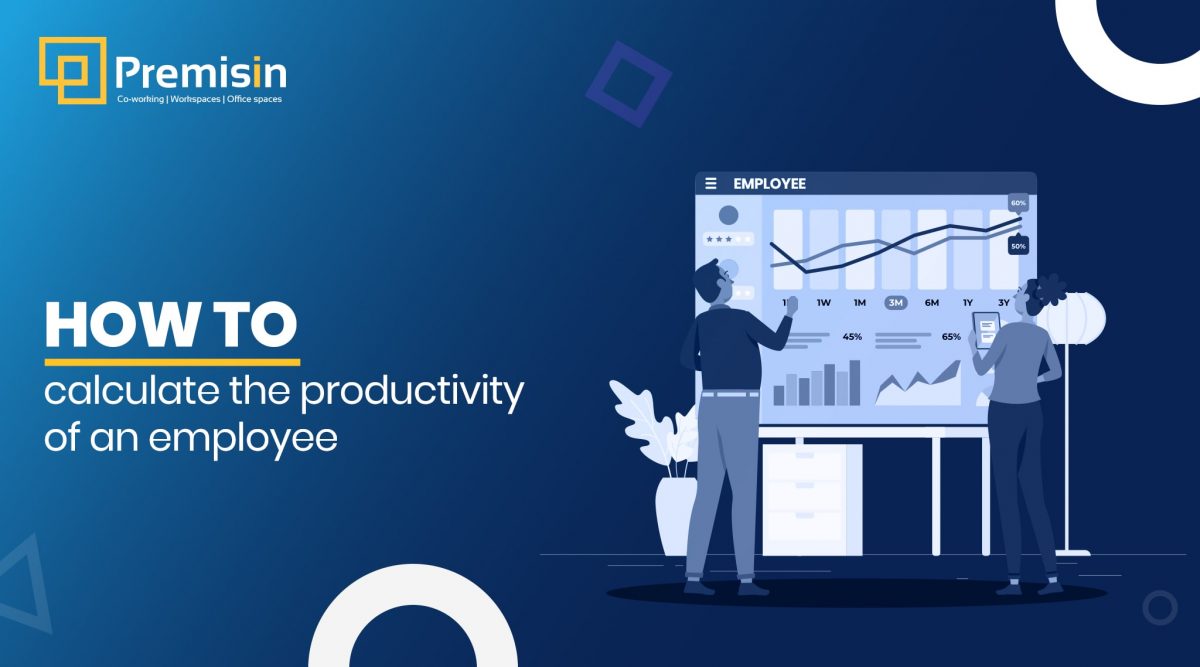Have you heard the old adage that says “If you can’t measure it, you can’t improve it?” Although there is considerable disagreement over who stated it, the attitude is still frequently used in business.
That is a valid justification. Regardless of who said that, when it comes to employee productivity, it has some genuine merit.
When you’re ready to learn how to boost workplace productivity, you need to first understand where you’re beginning. With that baseline, you can make enhancements that are more focused and help your team be more productive (ideally, in less time)
But first, how do you even begin to gauge productivity? What can you infer from that information? Let’s dig into what you need to know.
How to calculate the productivity of an employee in the workplace
You’re in luck if you’re seeking a straightforward formula to determine productivity. There is a common formula that many industries rely on to calculate the productivity of an employee.
Units of output
——————— = Productivity
Units of input
So, for example, your sales team would earn 10,000 per hour if it generates 10,00,000 in revenue in 100 hours. You might also produce half a blog post every hour if your marketing team produced 10 new blog posts in 20 hours.
Read: Innovative and creative work spaces ideas to boost productivity
That sounds fairly simple, don’t you think? Nevertheless, there are a few issues. First and foremost, it doesn’t provide you with a lot of information that is useful. Yes you may observe how much work your team produces over a specific period of time. But how can you use that information? Not much.
Second, it’s an equation that knowledge workers don’t always fit into. It’s challenging to boil their value down to a single digit when so much of their work is intangible.
This isn’t to say that you cannot assess the efficiency of your group. It’s still crucial to know how much they’re creative and where they spend their time. To get the full picture, you’ll just need to use a few other methods.
1. Specify precise objectives for each role
Keeping track of how each employee is performing in relation to the objectives you have set for them is one of the finest methods to gauge their productivity as an individual.
Unfortunately, many leaders fail miserably in this area. Only around half of the employees actually claim to understand what is required of them at work.
Make sure that you’re setting specific goals for their productivity and efficiency in collaboration with your staff. That will not only encourage them but also enable you to keep a closer eye on any area where they are falling short and in a way will help to measure the productivity of each employee.
2. Encourage time tracking
In order to calculate the productivity of employees, time monitoring is a quick and effective approach to gauging their productivity. Here are several ways time monitoring might help you save money.
Instead than closely monitoring your employees’ working hours, time tracking should be used to help them gain a better awareness of how their own time is being used. This will be important information to assist them to be even more effective because it’s simple to lose track of what we accomplish in a day and what prevents us from doing it.
Just be careful not to impose harsh restrictions or reprimands regarding the number of hours worked. Even though a recent survey found that 79% of respondents said it was acceptable for employers to keep an eye on their work-related activities, you still don’t want to promote a culture where employees feel like “big brother” is constantly watching. said it was acceptable for employers Just be careful not to institute reprimands or strict policies relating to hours worked. While 79% of respondents in a recent survey said that they believe it’s perfectly okay for employers to monitor their workplace-related tasks, you still don’t want to foster a culture where it feels like “big brother” is always watching.
3. Have candid conversations about productivity
What is the most effective technique to measure the productivity of an employee or a team? The answer is to ask them about it.
Since they are the ones on the ground, your employees are likely to have a wealth of knowledge about how you all can be more efficient and effective. Do they consider any particular activities to be time wasters? Do certain tasks take longer than they ought to?
Start a discussion about this with your team. You’ll learn some useful facts and stay aware of everyone’s emotions. This is crucial given that 48% of employees complain about having too many unreasonable deadlines and too much work to complete.
How to manage productivity in the workplace: Determine what works for your team
We certainly don’t blame you if you’re excitedly attempting to figure out how to boost productivity at work. Every leader wants to maximize productivity and be as impactful as possible.
Also Read: How to find professional office space in Raipur
To measure the productivity of an employee and control how much work he/she has accomplished, there isn’t a one-size-fits-all strategy when it comes to workplace productivity advice. You must adapt your strategy to your team’s demands and unique obstacles if you want to notice a noticeable difference.
Conclusion
Premisin understands the importance of productivity in the workplace and encourages a place where every employee would want to give their best. Because when a firm is highly productive, it eventually becomes successful, and because of this, incentives are bound to be made available to the employees. Visit our website to know more about our office space models.

